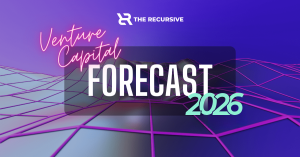With a maturing PE and VC industry at the backbone, the innovation ecosystem in Central and Eastern Europe is poised to continue its momentum and catch up with the West. In 2022, the value of 100 CEE digital champions exceeded $75B, or 4% of the region’s GDP. Moreover, by Q3 2022, the region had raised twice as much combined VC investment than in 2020.
Certain verticals, including SaaS, fintech, e-commerce, transportation, and food are outpacing others in terms of attracting funding from investors, generating traction, and reaching unicorn valuations.
Yet early stage players in unique industries such as fintech, food tech, and climate tech are likely to require more than financial support and general business advice to bring a competitive technology to market and, later down the road, to scale. Instead, they may require significant domain knowledge and industry networks, resources that only specialized VCs could offer.
Furthermore, funds may need relevant expertise to accurately evaluate the companies innovating and developing highly specialized solutions in order to avoid missed opportunities.
Verticals taking off in CEE
The 2022 Digital Champions CEE report mapped 37 new companies in the region bringing value to the market. The largest numbers of champions came from SaaS (16), but also Fintech (19) and e-commerce (6).
Indeed, these verticals are showing more interest from entrepreneurs. By Dealroom’s estimates, between 2021-2023, the region saw the launch of 84 new fintechs, 38 new climate tech startups, and 30 food tech companies.
So, how are they faring when it comes to VC investment?
Fintech is the second highest VC-funded industry in CEE, with 18% of total funding. However, fintech tends to get mostly early-stage financing, with Bulgarian Payhawk and Serbian Tenderly making an exception in the past 2 years. 14 of top 100 VC funds in CEE mention fintech as a target vertical for investment, yet only one focuses exclusively on financial services. A relatively recent development in more mature ecosystems is the increasing number of specialist VC funds focused on banking fintech, where all or most of the LPs are financial institutions.
Sustainability is another vertical where we see steady growth in CEE, yet disproportionately low funding compared to other parts of Europe, as well as when taking into account the greenhouse gas emissions generated in the region. Climate tech investments rose from $10.6M in 2013 to U$398M in 2020, and to over $502M in the first half of 2021 alone. Yet this was mostly driven by a handful of megadeals in specific sectors such as mobility and transportation, as well as industry, manufacturing and resource management. Even though sustainability investing, through approaches such as ESG or impact investing, is garnering more attention, we see only a handful of CEE-based funds focused on sustainability.
Finally, food, closely connected to sustainability, is a promising new sector in the innovation ecosystem in CEE, attracting 7% of total VC funding in CEE between Q1-Q3 2022. Similarly to fintech and sustainability, investments in the area are done via generalist funds which may lack the necessary knowledge, experience, and networks to assist startups on their scaling journeys.
How specialist VCs can help advance the innovation ecosystem in CEE
We further asked founders in the region what their needs are when it comes to investment in their vertical and what would be the benefits of a specialist VC.
Payhawk’s co-founder and CEO Hristo Borisov entertains the idea: “I do agree there is a need for a specialist fund around Fintech in CEE. There are already a good number of early-stage VCs that have this as a focus area like Eleven Ventures. Understanding the regulatory environment, unit economics, and having a relationship with the most active infrastructure providers in the fintech space can go a long way to help entrepreneurs shorten their time to market.”
He further adds that CEE is also fragmented when it comes to currencies and local payment systems, which further increases the complexity of providing strong products. Where can VCs come in? Hristo explains: “VCs tend to be great at building relationships and support entrepreneurs with building their core products around established players that are harder to reach if you are not an established name.”
In the area of climate, food, and agritech, we heard from Konstantin Haralampiev, Head of Business Development and Partnerships at Agrovar, who reflected on the areas where he sees sustainability, food, and agritech specialist VC bringing the biggest value:
- “Deep industry expertise: VCs specializing in these areas typically have extensive knowledge and experience in the field, which can help startups navigate the complex regulatory and technological landscape.
- Access to networks: These VCs often have connections to industry leaders, policymakers, and other relevant stakeholders, which can help startups forge partnerships and gain valuable exposure. This is extremely important in these sectors, as policy in some countries is changing rapidly.
- Increased funding opportunities: Specialist VCs are more likely to invest in companies that are focused on creating sustainable and environmentally friendly solutions, which can attract additional funding and support from impact investors.
- Accelerated growth: With specialized expertise and networks, these VCs can help startups grow faster, which can lead to greater impact and success.
- Alignment with values: Startups in climate, food, and agritech are often motivated by a desire to create positive change in the world. By working with VCs that share these values, they can find partners who are equally committed to driving sustainable growth and positive impact.”
Konstantin believes that as the popularity of tech solutions in these sectors grows, and more investors are looking into companies with social and environmental impact in addition to financial returns, the presence of specialist VCs can create the needed ecosystem which can interlink all relevant stakeholders and scale up the overall success.
Liviu Huluta, co-founder and CEO of INKI Tech, further explains how more focus on sustainability issues in the investment community in the CEE can help the overall regional ecosystem.
For instance, CEE is lagging on its e-waste efforts. “While the EU is leading the world in recycling appliances (over 40%), Eastern Europe is lagging at 23%. We, too, have surveyed over 2000 companies in Hungary and Romania to see exactly how they manage mobile phone waste. 19% of respondents in Hungary and 14% in Romania respectively stated that they have a documented scraping recycling policy for mobile phones.”
He adds that there should be an increased focus from the investment community to factor in some ESG metrics in their decision making criteria.
“While we have some VCs focused on a sustainability proposition in CEE, we can expect them to be extremely selective as there is more demand than supply. One can check the list of projects that make it with the Financing Agency for Social Entrepreneurship and see there are no CEE-based projects. This means there are extremely few CEE based sustainability minded or focused start-ups to make into series A or B. Our experience is that the roots are there, entrepreneurs crave to build something that helps society be cleaner and better, but currently capital isn’t flowing into their direction.”








